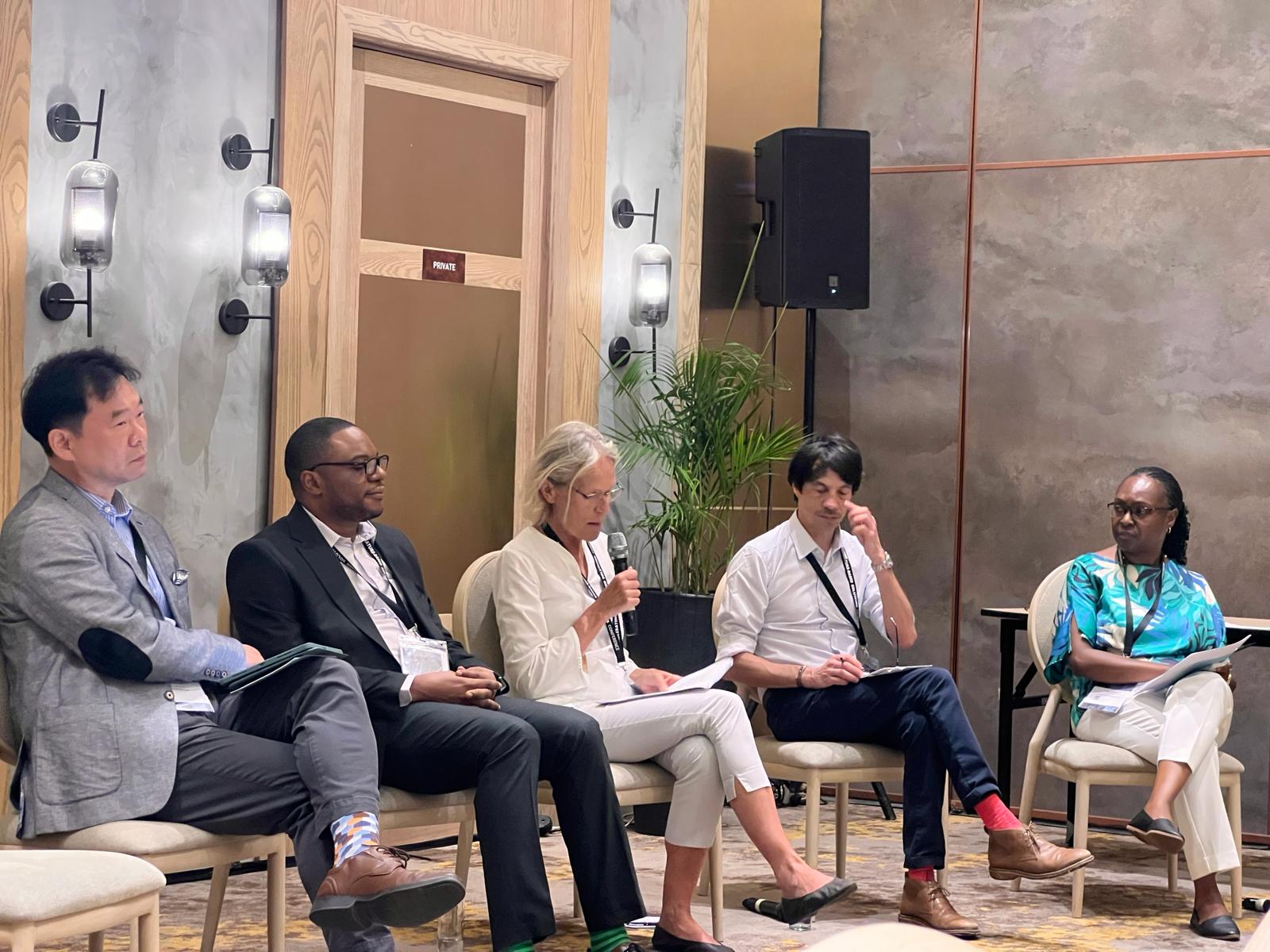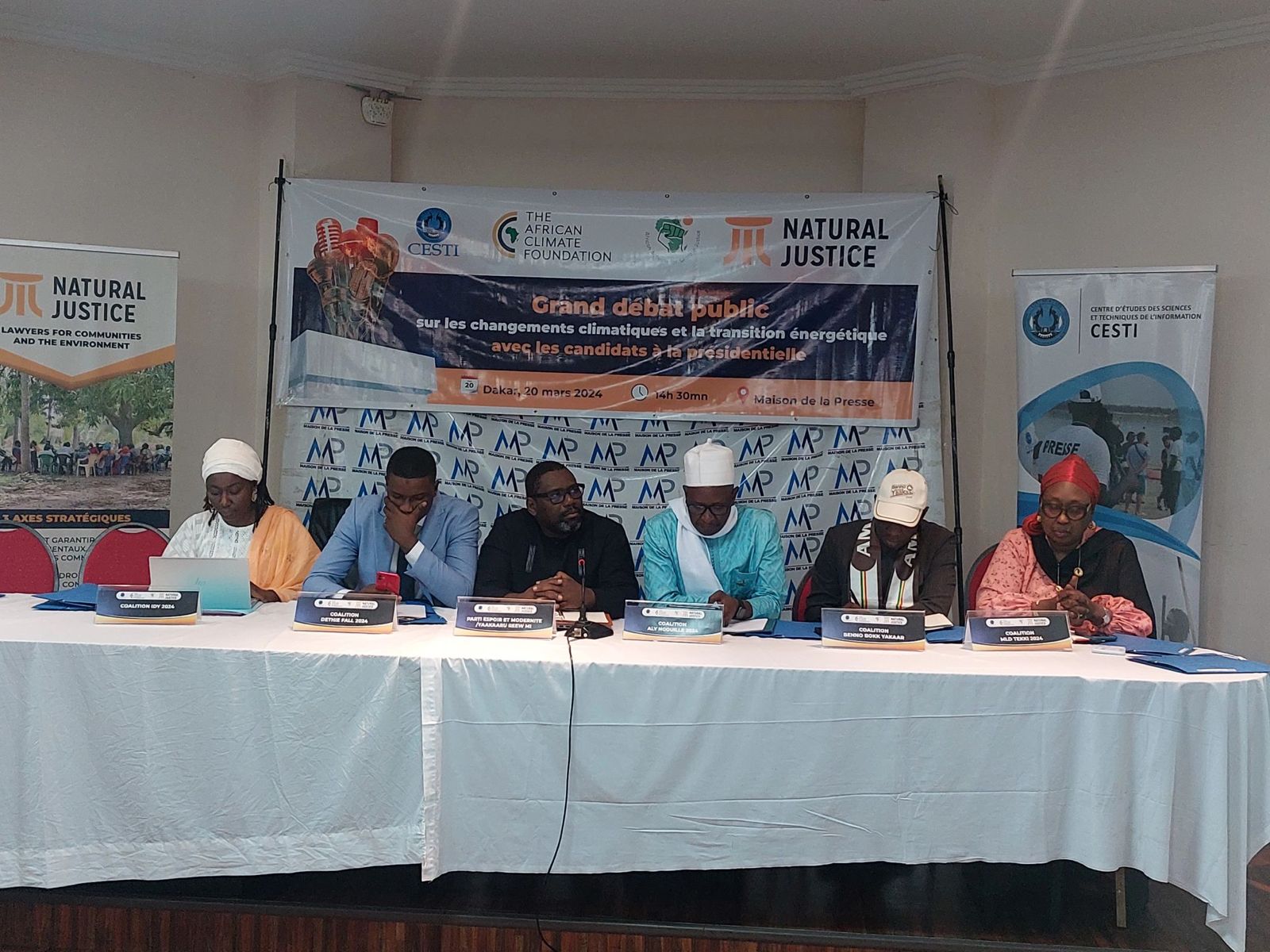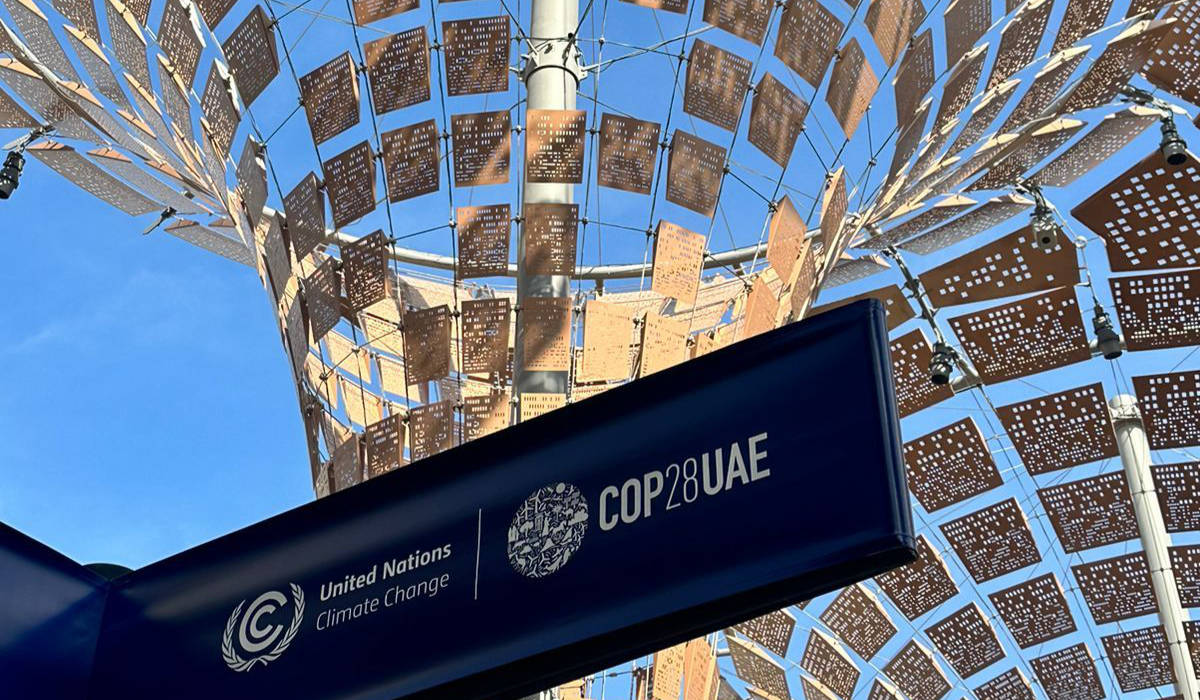South Africa’s watershed multi-billion-dollar climate finance deal announced on Tuesday gave much-needed hope to the UN climate talks after a lacklustre start. The deal has made South Africa a star performer at the talks, setting the scene for the country to transition away from coal to cleaner forms of energy.
The country has committed to ambitious targets to attract billions in climate funding from wealthy nations. South Africa is among the most coal-dependent nations in the world, and its commitments are a huge milestone at the conference.
In a historic deal, the South African government announced that France, Germany, the United Kingdom and the United States, as well as the European Union, had pledged R131-billion over the next three to five years in the form of grants, concessional loans and investment and risk-sharing instruments, including mobilising private sector funding.
In return for the funds, South Africa’s state-owned power utility Eskom will close down its coal power stations before the end of their normal lifespan, over the next 15 years. The funds will also assist Eskom to build a strong renewable energy sector. Apart from funding Eskom’s transition, South Africa will also use the funds to build a green hydrogen sector and help shift the nation’s transportation to electric vehicles.
Funds will enable a just transition
An elated South African president Cyril Ramaphosa labelled the partnership a watershed moment not only for South Africa’s own just transition but for the world as a whole.
“It is proof that we can take ambitious climate action while increasing our energy security, creating jobs and harnessing new opportunities for investment, with support from developed economies.”
Deputy Chairperson of the Presidential Commission on Climate Change, Valli Moosa, said the deal will serve as a needed accelerant to decarbonise the South African economy “and support a just transition which prioritises the needs of workers and vulnerable communities”.
The announcement showed the commitment and resolve of the South African government to seek innovative funding and investment mechanisms to support the country’s decarbonisation efforts and ultimately propel it to reach its ambitious emissions targets, Moosa said.
He said the much-needed funding comes at a time when South Africa’s climate transition remains constrained by weak economic conditions, skills shortages, and a slim fiscal position.
Spark for new deals
This is the first significant financing deal to emerge from the UN climate talks, but delegates believed the South African deal could spark similar deals with other big emitters in the developing world.
Climate finance remains a sticking point at the climate talks, with evidence of rich countries’ broken promises looming over the conference this far. The developed world committed in 2009 to transfer $100 billion a year to the developing world to aid its transition to low-carbon economies by 2020, but that target was missed last year and a large gap remains.
Ramaphosa said bold and ambitious actions were required from all countries to confront climate change and South Africa has consistently argued that developed economies must support a just transition in developing economies.
“Today’s political declaration represents a first-of-its-kind partnership to turn these commitments into reality and a model for similar forms of collaboration globally.”
South Africa’s ambition
The South African president explained that a just transition sits at the heart of this partnership. This includes support for workers and communities affected by the transition away from coal and enables the creation of quality green jobs.
Before COP26 South Africa already took an ambitious leap forward in setting its Nationally Determined Contribution (NDC), which will determine how it cuts its emissions. Its revised target was compatible with the ambitious goals of the Paris Agreement and represented South Africa’s best effort to confront climate change. But South Africa was adamant that it would need money to achieve this.
Saliem Fakir, executive director at the African Climate Foundation, said the announcement was an amazing accomplishment for South Africa.
“It was all done in a very short space of time. This is a significant milestone in South Africa’s history. It is a big fundamental shift for the country’s energy sector, and for climate, in that we have never had something as groundbreaking as this.
He said the hard work began now to see the deal come to fruition.
Praise from world leaders
World leaders also recognised the deal as a landmark effort. COP26’s host The United Kingdom’s Prime Minister, Boris Johnson, labelled climate finance as a “game-changing partnership “ that “will set a precedent for how countries can work together to accelerate the transition to clean, green energy and technology”.
“Moving away from coal is essential if we are to meet our target of limiting global warming to 1.5 degrees. President Ramaphosa has shown real leadership on this issue, and the United Kingdom is committed to working with South Africa and our partners to support a just and fair transition to renewable energy.”
US president Joe Biden said that right now South Africa was the largest emitter in Africa due in large part to the heavy reliance on coal for power.
“By closing South African coal plants ahead of schedule and investing in clean power alternatives for the people of South Africa and supporting an equitable and inclusive transition in South Africa’s coal sector, we are following through on the pledge the G7 partners made in Cornwall to accelerate the transition away from coal in developing countries.”
France’s President Emmanuel Macron said the new partnership mobilised very significant support for South Africa’s ambitious decarbonisation project for a just energy transition.
German chancellor of the Federal Republic of Germany, Angela Merkel was pleased that Germany was part of this important partnership with South Africa.
“We are committed to supporting both the decarbonisation of South Africa‘s electricity production and the development of new economic opportunities for affected communities.”
Greenpeace Africa also welcomed the announcement but added that it should be used for a real just transition and not become another empty promise of the South African government paying lip service to climate justice.
It cautioned that the funds should be used for just transition projects and not used as a ploy to ensure the longevity of carbon majors such as Sasol.
Greenpeace said the funds should be used to prop up Sasol’s fossil fuel derived hydrogen projects.
“Now more than ever, security must follow our government to ensure these finances serve their designated purpose and are not looted by our unscrupulous rent-seekers.”



